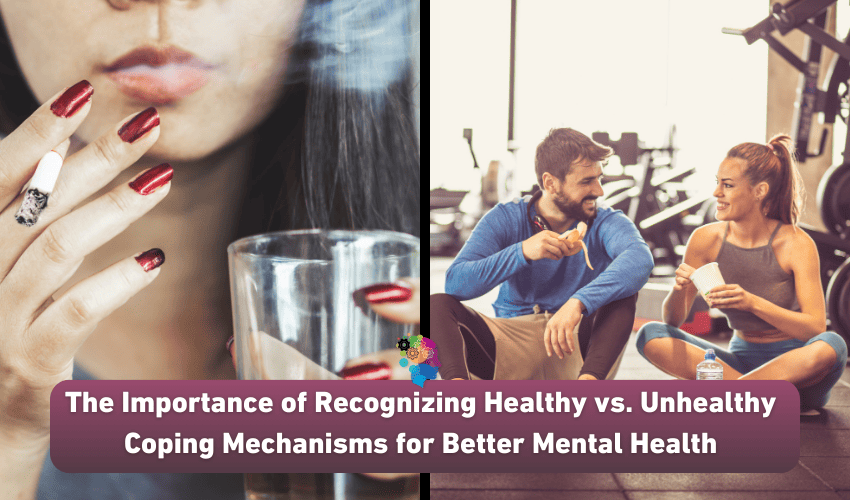In today's fast-paced world, finding moments of mindfulness can be a challenge. Embracing "The Power of Now"...

What is the difference between healthy vs unhealthy coping mechanisms? Coping mechanisms are behaviors and strategies we use to manage stress and emotional difficulties. Coping mechanisms are things people do to deal with difficult situations.
Some of these techniques are healthy, and some are unhealthy. To grow, we need to know the difference between the two to make use of the more beneficial methods.
Using unhealthy coping strategies to deal with stress and problems can cause damage to our minds and bodies. But when we use healthy coping skills, it can help us feel better and stronger. [1]

Take a quick 10 question test to gain some insight into your mental health on a variety of topics.
Exercises or physical activity, such as running, yoga, or dancing

The first step to adopting healthy coping mechanisms is identifying your current unhealthy ones. Pause momentarily to consider the approaches you turn to when feeling stressed, anxious, or overwhelmed.
Once you have identified your unhealthy coping habits, determine the triggers that lead you to use them. This will help you to develop healthier coping mechanisms that specifically address those triggers.

Look for ways to help yourself feel better when feeling stressed, anxious, or sad. Find out what activities can help you manage these feelings. Many resources are available online, in books, or from a therapist.
Based on your research and personal preferences, choose several healthy coping mechanisms that will work well for you. Write down the different things you can do when you feel overwhelmed. Then, look at the list when you need to calm down.
Practice your healthy coping mechanisms regularly, even when you're not feeling particularly stressed or anxious. This will help you get used to healthy ways of dealing with problems when they arise.
Adopting healthy coping mechanisms takes time and practice. Be patient with yourself and celebrate small victories along the way.
Set realistic goals for yourself when it comes to adopting healthy coping mechanisms. For example, aim to practice a healthy coping skill for five minutes a day instead of trying to use it for an hour right away.
Consistency is vital when it comes to adopting a healthy coping strategy. Commit yourself to practice your healthy coping skills regularly.
Seek support from friends, family, or a therapist as you work to adopt healthy coping skills and mechanisms. Talking to someone about what you are doing, can be helpful.
We would recommend Online Therapy to help you with your unhealthy coping habits.
Finally, practice self-compassion as you adopt healthy coping mechanisms. It's ok to make mistakes and have bad days. It takes time to learn how to deal with challenging situations healthily. [5]
It's essential to know how to handle stress and emotions in a good way. It might take some time to change your habits, but it will be worth it in the long run.
Healthy ways to cope with stress include walking, sitting quietly and thinking, writing down your thoughts in a journal, talking to someone you trust, and doing activities that make you happy (like playing an instrument).
Make them part of your daily routine to help you use the coping strategies you learned. Set reminders on your phone or calendar to remind yourself. Take care of yourself with rest, food, and exercise. Be kind to yourself as you practice these new skills.
You must be logged in to post a comment.
In today's fast-paced world, finding moments of mindfulness can be a challenge. Embracing "The Power of Now"...
In our fast-paced world, finding moments of tranquility can be a challenge. Meditation apps offer a convenient...
In our fast-paced world, taking time for self-reflection and mindfulness is essential for well-being. Journaling can be...
In today’s fast-paced world, managing stress has become an essential aspect of maintaining overall well-being. Two popular...
Dissociation can be a challenging experience, especially the one that happens at work. Are you experiencing dissociation?...
Bionic reading transforms the reading experience for ADHD individuals by guiding the eyes for focus and understanding. Dive into the world of bionic reading.
Explore the complexities of postpartum depression and genetics in our blog 'Is Postpartum Depression Hereditary?' for insights into maternal mental health.

This post is amazing